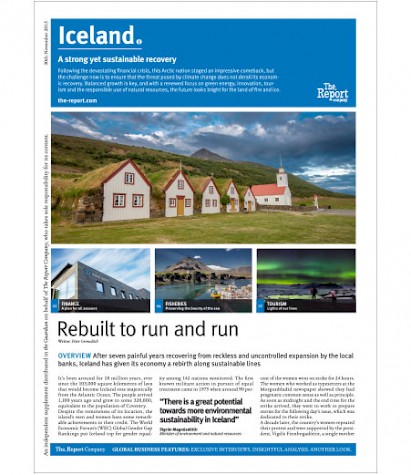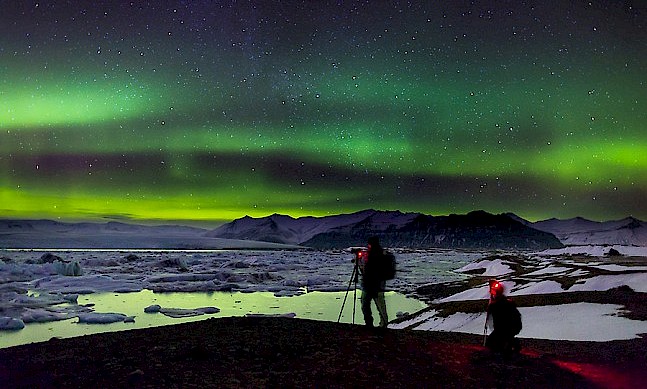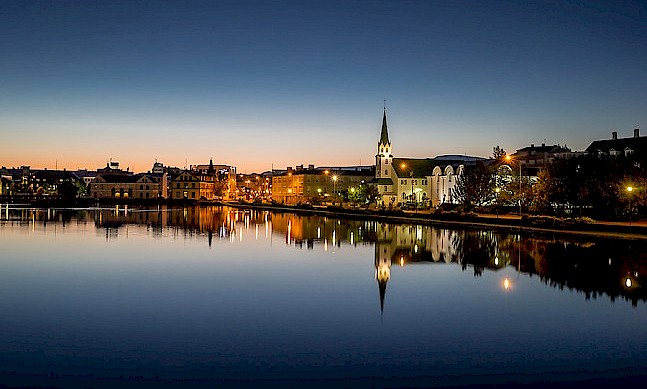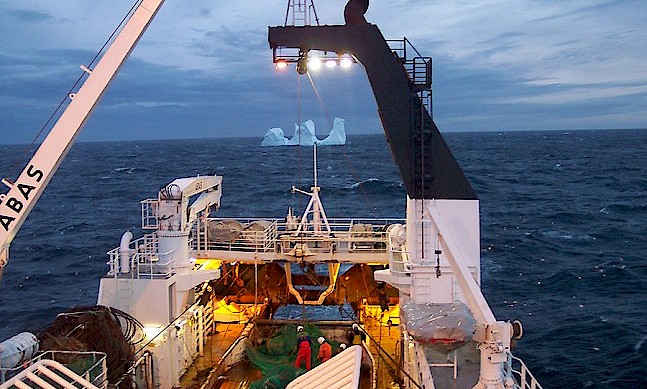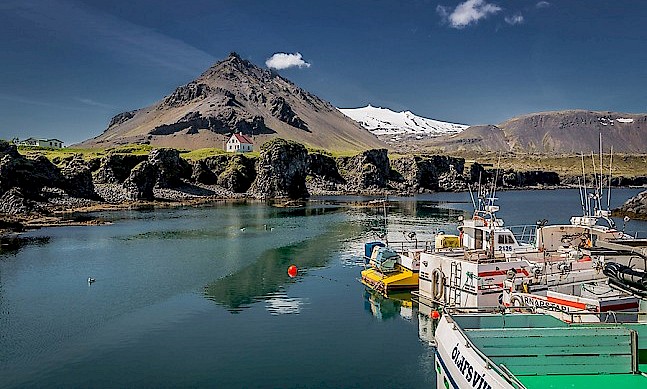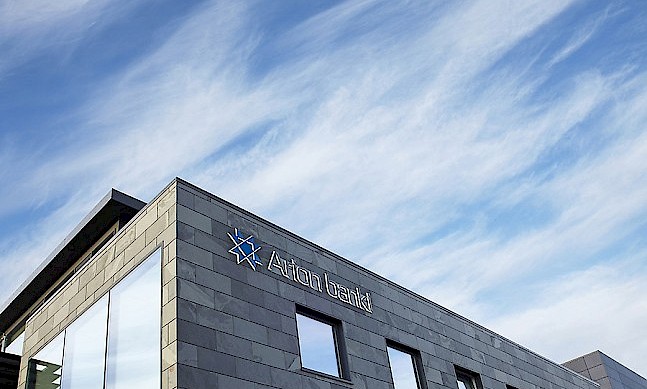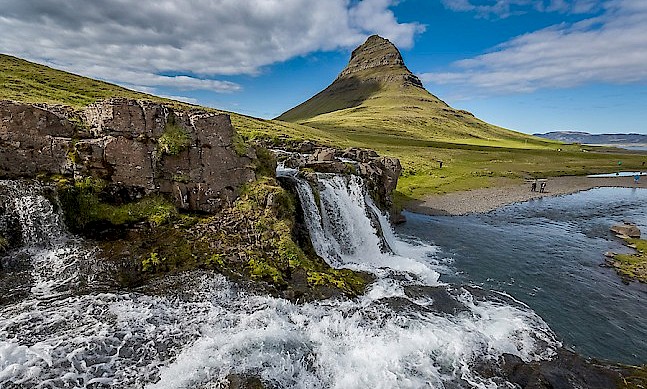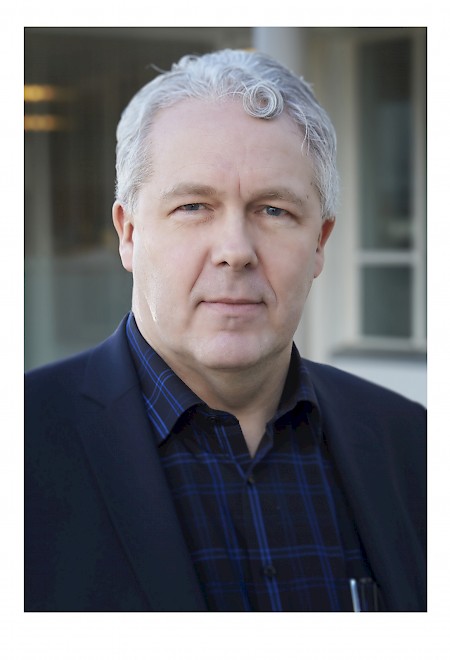 Björn Halldórsson, CEO of Sorpa. Photo: Sorpa
Björn Halldórsson, CEO of Sorpa. Photo: Sorpa
Sorpa is a waste management company which receives, handles and disposes waste from the seven municipalities that make up the Reykjavík capital area. At its landfill site, the company collects landfill gas, upgrades this to biofuel, then sells it as vehicle fuel to the public via a distributor and a retailer. All refuse collection trucks in Reykjavík use methane from the landfill site as fuel, as do some city buses. Björn Halldórsson, Sorpa’s CEO, spoke to The Report Company about turning waste into fuel.
The Report Company: What does Sorpa do?
Björn Halldórsson: The company was founded in 1989, and started operations in 1991. This company has been at the cutting edge of development in the waste sector in Iceland. It is a non-for profit, it is owned by the communities, it is not a shareholder company, so our aim is to minimise cost not to optimise profit.
This company was set up to receive waste. We do not collect waste from individual houses. That is the responsibility of each and every community or municipality. We do operate drop-off centres and recycling centres where people can bring their recycling, but the household waste is collected by the municipality and brought to our station. We then take it, bale it and then landfill it, and then afterwards we take out the landfill gas. We then clean this gas and we utilise it for vehicles. There are around 1,100 vehicles here in our capital that run on upgraded landfill gas. It’s been a very successful project.
To the best of my knowledge, this is the only place in Europe where we utilise landfill gas as vehicle fuel. Because of the energy situation here in Iceland, we do have a slightly different situation than in most other countries. We do landfill a little more than other countries, for example compared to Sweden, Norway Finland, Belgium, Germany and so on, because we don’t need incinerators to produce electricity or district heating like they do in the Nordic countries because we have geothermal. However, we import all our fossil fuels for transportation, so that is why this company decided back in 2002 to try and utilise the methane from landfill as a vehicle fuel. We did have a small project for a short time where we produced electricity, but that was just costly, basically because we can’t compete with geothermal or hydropower, and that is why we use the landfill gas for vehicles.
“To the best of my knowledge, this is the only place in Europe where we utilise landfill gas as vehicle fuel”Tweet This
TRC: What are the challenges involved in increasing the number of vehicles using methane as fuel?
BH: This is a very small project and we could never fulfil the market here in Iceland. There are about 20,000 vehicles in the capital area, and we can probably provide enough fuel from the landfill gas for around 4,000 cars. That would be our maximum at the moment. However, we are in the starting phase of building biogas plants where we will take organic material and make biogas out of it.
With a factory that produces biogas, we can produce methane, we can produce CO2, if that is interesting, we can produce compost, and this can be used for fighting erosion, and there is then an extra benefit to that factory.
TRC: How will you finance the new plants and activities?
BH: We finance a part of it, our owners, the communities, will put up some money, and probably some loans somewhere, but it hasn’t been exactly decided. This has been by far the biggest project that we have encountered since the beginning of this company, so it does take a lot of money, but our owners are determined to run this through, so financing I don’t think will be a problem.
TRC: When will it be finished?
BH: We aim at 2017, so that’s our goal.
TRC: With regard to the image of Iceland around climate change, what should Iceland portray at the Paris Summit at the end of the year?
BH: Iceland is very small compared to all the big fishes in the ocean but what we can show is that you can do a lot of things in your backyard. We are never going to change the use of fossil fuels to methane produced from organic matter, but we are taking a small step towards this. There are other things happening here in Iceland. We are also in the process of starting production of biodiesel from slaughterhouse waste in cooperation with an Icelandic company, so there we have another source of renewable energy.
Waste management is another thing that we could also showcase. We think that we do it very effectively, if you compare for example material recycling here in the Reykjavík area compared to most cities in Scandinavia, we achieve the same results without having a lot of containers at every house. It has been commonly thought that if you bring six containers to every house you will increase your recycling, but the inhabitants of the capital area have been really willing to participate in recycling schemes even though they don’t get the service to their home. I think we have achieved this by more than one means; Sorpa itself does education with schoolchildren. It is actually written to our founding document that we are to promote environmental issues. We also have another aspect which is The Good Shepherd, which is our second hand store. All the benefits of that go to charity, so people are very willing to give stuff to the shop and come into the shop and buy. We also do surveys about how people feel about this company, and we can say that about 96 percent of the people in this area are happy with our company. I don’t think we can find another company in this area that is so high. We have a very strong brand.
“Iceland is very small compared to all the big fishes in the ocean but what we can show is that you can do a lot of things in your backyard”Tweet This
TRC: What about the way you function can be exported worldwide?
BH: Especially if you are starting from scratch, I think that the model we have, where the municipalities are responsible, this is not a profit company, we do this to minimise costs, not to maximise profit, and also we provide education, is something that we could export.
TRC: What opportunities do you see for international partnerships?
BH: This is the biggest waste handling company in Iceland. All our knowledge has to be collected from somewhere else. It is not just collected from experience inside the company, so we look for different technical solutions all over the place, and try to take home what is applicable here.
TRC: What is your outlook for the company in the next five years?
BH: Our aim for this company is to be at the forefront as it has been. We now plan to start producing solid fuel, which we can export, made from plastics, timber, rubber and so on, so that we can increase our recycling for the next few years. We also hope to cooperate in international projects.


